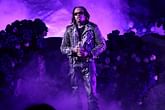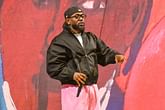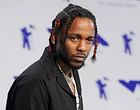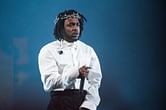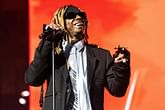What is the significance of Isaiah 14? Kendrick Lamar's lyrics on 'Reincarnated' reinforces his lyrical genius
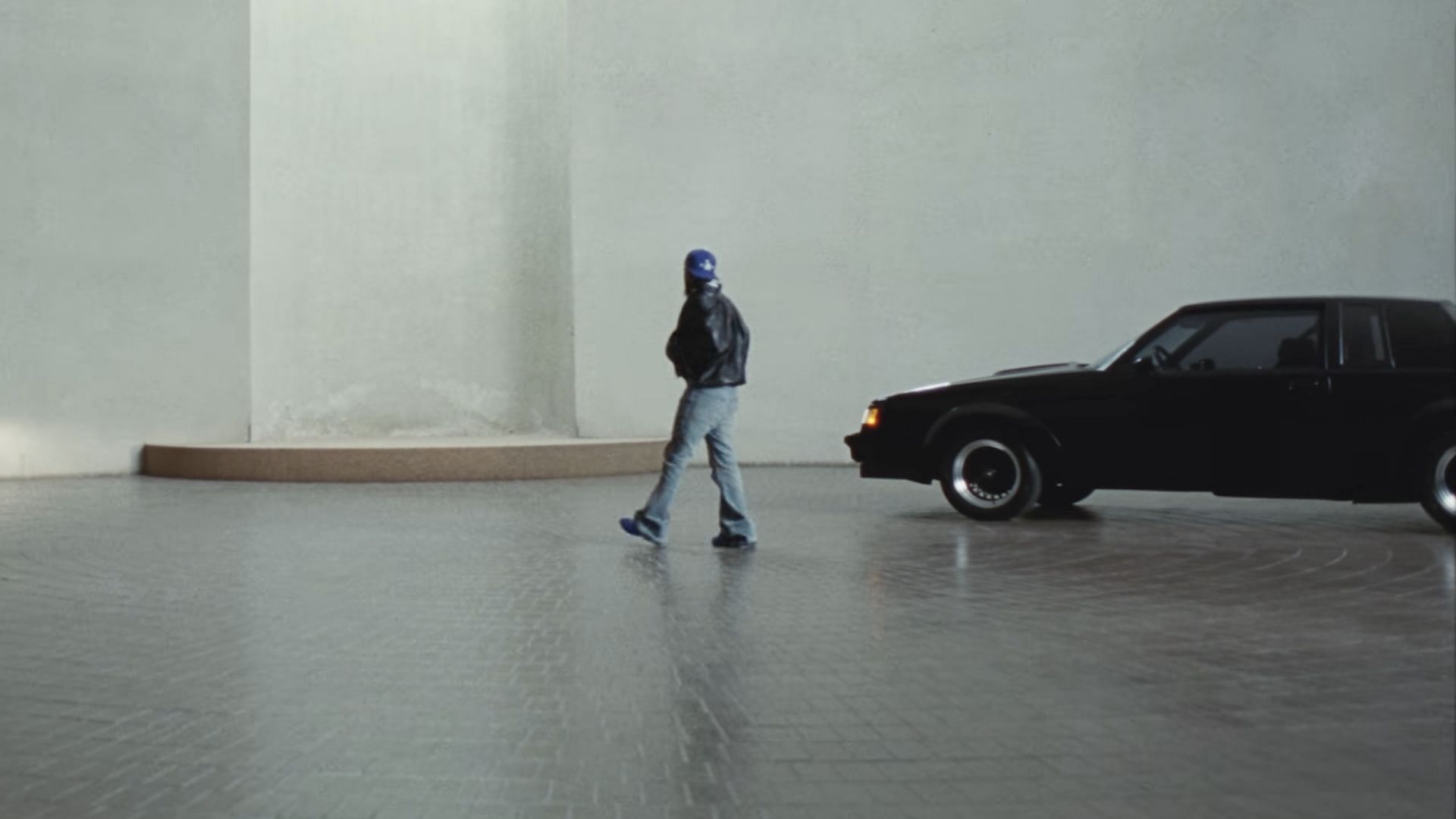
Kendrick Lamar's new album, GNX, has taken the internet by storm after it was surprise dropped last night (November 22). The project seemingly acts as a 2024 victory lap for the Compton native, who dominated the music industry and Billboard charts after going head-to-head with Drake.
Following up on his six-time Grammy-nominated diss track, Not Like Us, Kendrick's GNX primarily centers on his growing legacy as one of the greatest rappers of our generation.
With intricate rhymes and triple entendres, Kendrick's writing prowess and lyrical genius are showcased in full on his sixth studio album.
While fans continue to share lyrics and their favorite quotes from GNX's more hype-infused records like tv off and wacced out murals, several were seen attempting to break down the meaning behind one of the most conceptual and abstract records on the album titled reincarnated.
Opening as the sixth track on GNX, this record finds Kendrick speaking from the perspectives of various past versions of himself. The Compton native metaphorically uses these references to suggest how the current generation of hip-hop should build on the legacies of those that came before them.
"Body after body, lesson after lesson, let's take it back to Michigan in 1947 / My father kicked me out the house 'cause I wouldn't listen to him / I didn't care about his influence, only loved what I was doing / Gifted as a musician, I played guitar on the grand level" - Kendrick Lamar raps on 'reincarnated'.
In the third verse, it appears that Kendrick is having a conversation with his father, Kenny Duckworth, about his legacy in hip-hop.
Digging deeper into the nuanced lyricism and over-arching theme of this track, it appears the rapper is actually having a conversation with God, speaking from the perspective of Satan i.e. The Fallen Angel.
In the verse, Kendrick revisits Lucifer being cast out of heaven explaining how his pride, anxiety, and need for control, eventually led to his fall from grace. The rapper even references the bible verse "Isaiah 14:12," whose passage reads:
"How you have fallen from heaven, morning star, son of the dawn! You have been cast down to the earth, you who once laid low the nations!"
The passage is a prophecy that discusses the downfall of the King of Babylon and the restoration of Israel, explaining how the King's pride pushed him to believe he was on the same level as God.
The King, whose name is synonymous with "morning star," was eventually struck down by God. This concept ties into Kendrick's re-telling of this story, with him ending his verse by stating:
"I promise that I'll use my gifts to bring understanding / For every man, woman and child, how much can you vow? I vow my life just to live one in harmony now / You crushed a lot of people keeping their thoughts in captivity / And I'm ashamed that I ever created that enemy / Then let's rejoice where we at / I rewrote the devil's story just to take our power back, 'carnated"
Top 10 bars from Kendrick Lamar’s sixth studio album 'GNX'
Kendrick Lamar's GNX is a 12-track LP, packed with tracks that range from abstract to hyper-energetic. The album also features guest performances from artists like SZA, Dody6, Roddy Ricch, Peysoh, and more.
Over 44 minutes of runtime, Kendrick delivers exceptional tracks, fueled by thought-provoking and layered lyricism that solidifies his place in hip-hop. Below are 10 of the best bars Lamar dropped on GNX.
Disclaimer: This review is rated explicit. Reader discretion is advised.
1) Kendrick Lamar believes he let "Lil Wayne down"

In the second verse of his opening track, wacced out murals, Kendrick Lamar speaks on his admiration for Lil Wayne during his formative years as an artist, citing how he used to overplay Tha Carter III upon its release in 2008.
Growing up on the Young Money CEO's discography, seemingly pushed Dot's artistry to evolve, in what has now resulted in a highly acclaimed career in hip-hop. K-Dot proceeds to highlight the complexities of success when explaining the irony of why he believes he eventually let down his idol.
Kendrick's reasoning stems from him being picked to headline the 2025 New Orleans Super Bowl halftime show instead of Lil Wayne, as seen in lines like:
"Used to bump Tha Carter III, I held my Rollie chain proud / Irony, I think my hard work let Lil Wayne down... Won the Super Bowl and Nas the only one congratulate me / All these n----s agitated, I'm just glad they showin' they faces / Quite frankly, plenty artists, but they outdated / Old a-- flows, tryna convince me that you they favorite"
2) Kendrick explains why he "deserves it all"
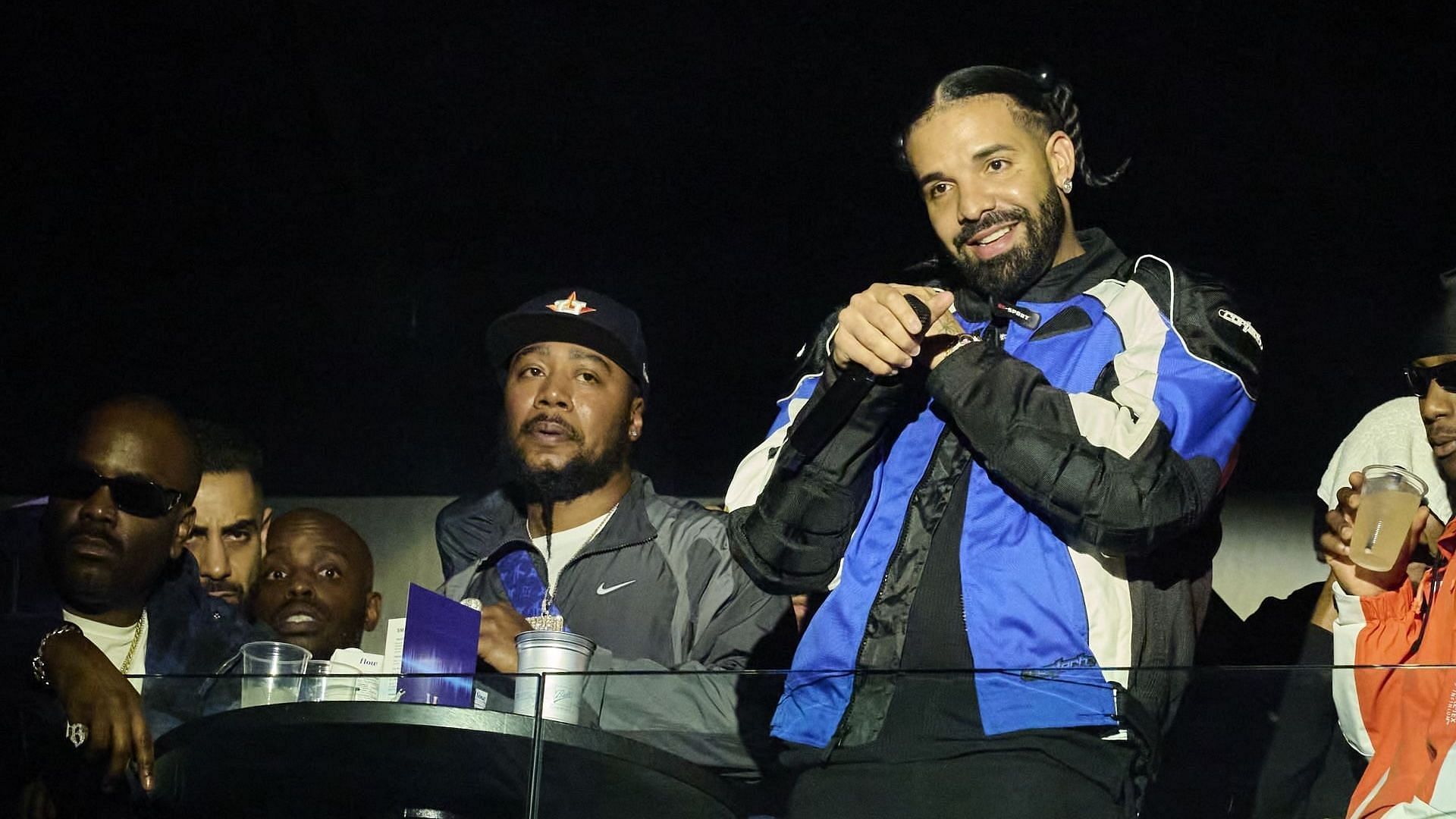
On man at the garden, another track whose title draws from biblical inspirations, Kendrick Lamar seemingly speaks on his 2024 beef with Drake. He explains how although the beef got personal, and ugly at times, his intention was always set on saving hip-hop from their superficial and materialistic desires.
This is best evidenced in the final few lines of his second verse, where Kendrick suggests being empowered by his ancestors to make a change.
"I see you as a human first / Even when you didn't understand your worth / B---h, I deserve it all / It's innate to mind my business / Writin' words, tryna elevate these children / That's why I deserve it all / Pray for those who prayed against me / Every reason why my ancestors sent me / B---h, I deserve it all" - Kendrick Lamar raps on 'man at the garden'.
3) Kendrick challenges other rappers for the "G.O.A.T." status
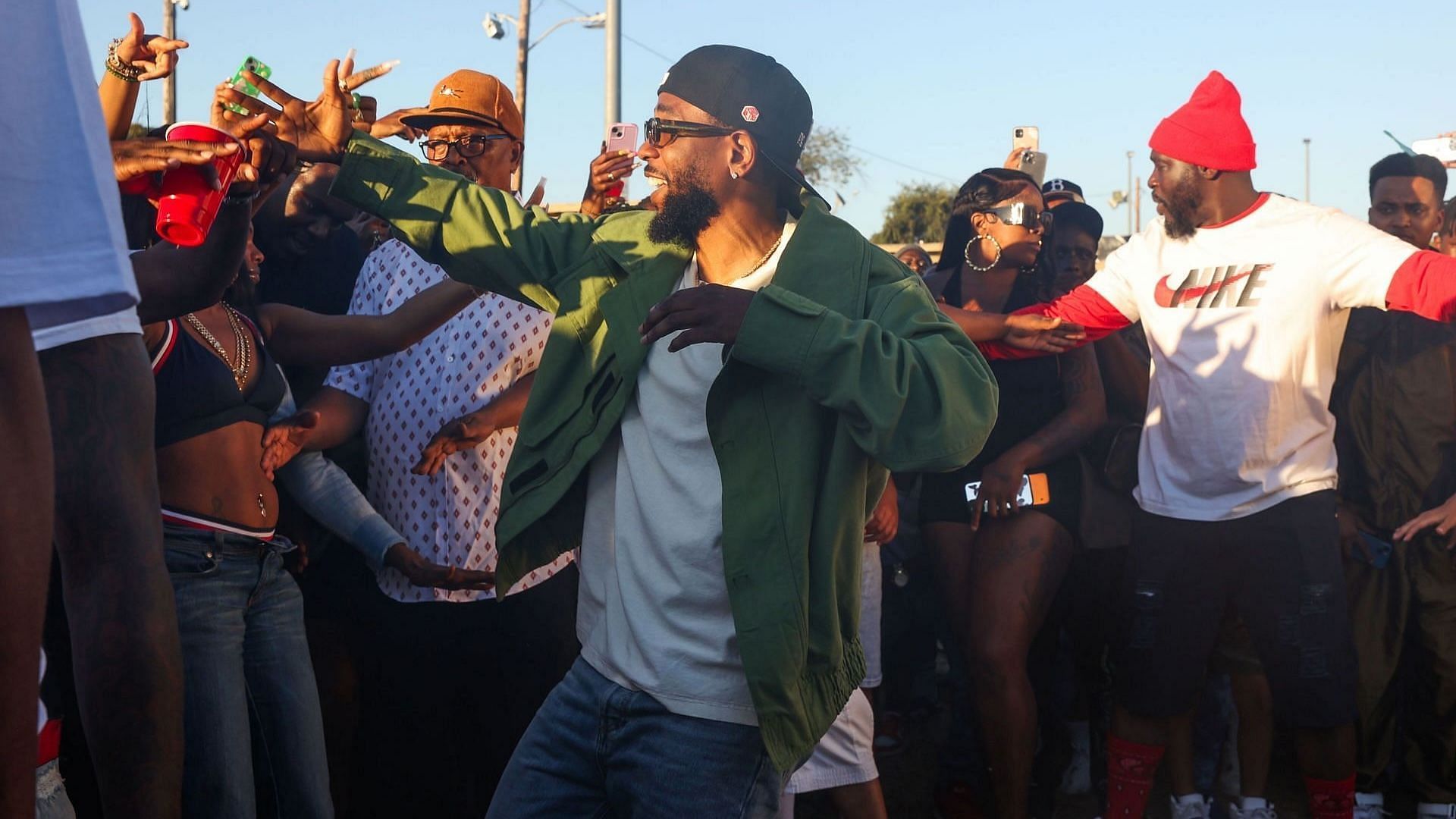
In Kendrick's final verse on man at the garden, the rapper seemingly takes shots at other artists. Lamar cites that he's different from the rest because he continues to make music with integrity.
After stating the various reasons why he deserves all the accolades he's earned over his career, Lamar ends man at the garden with a question. He asks rappers why they feel like they deserve to be mentioned during "G.O.A.T." discussions, rapping:
"More blood be spillin', it's just paint to me / Dangerously, nothin' changed with me, still got pain in me / Flip a coin, want the shameless me or the famous me? / How annoying, does it angers me to know the lames can speak / On the origins of the game I breathe? That's insane to me / It's important, I deserve it all because it's mine / Tell me why you think you deserve the greatest of all time, motherf--ker"
4) Kendrick claims he strangled a "goat"
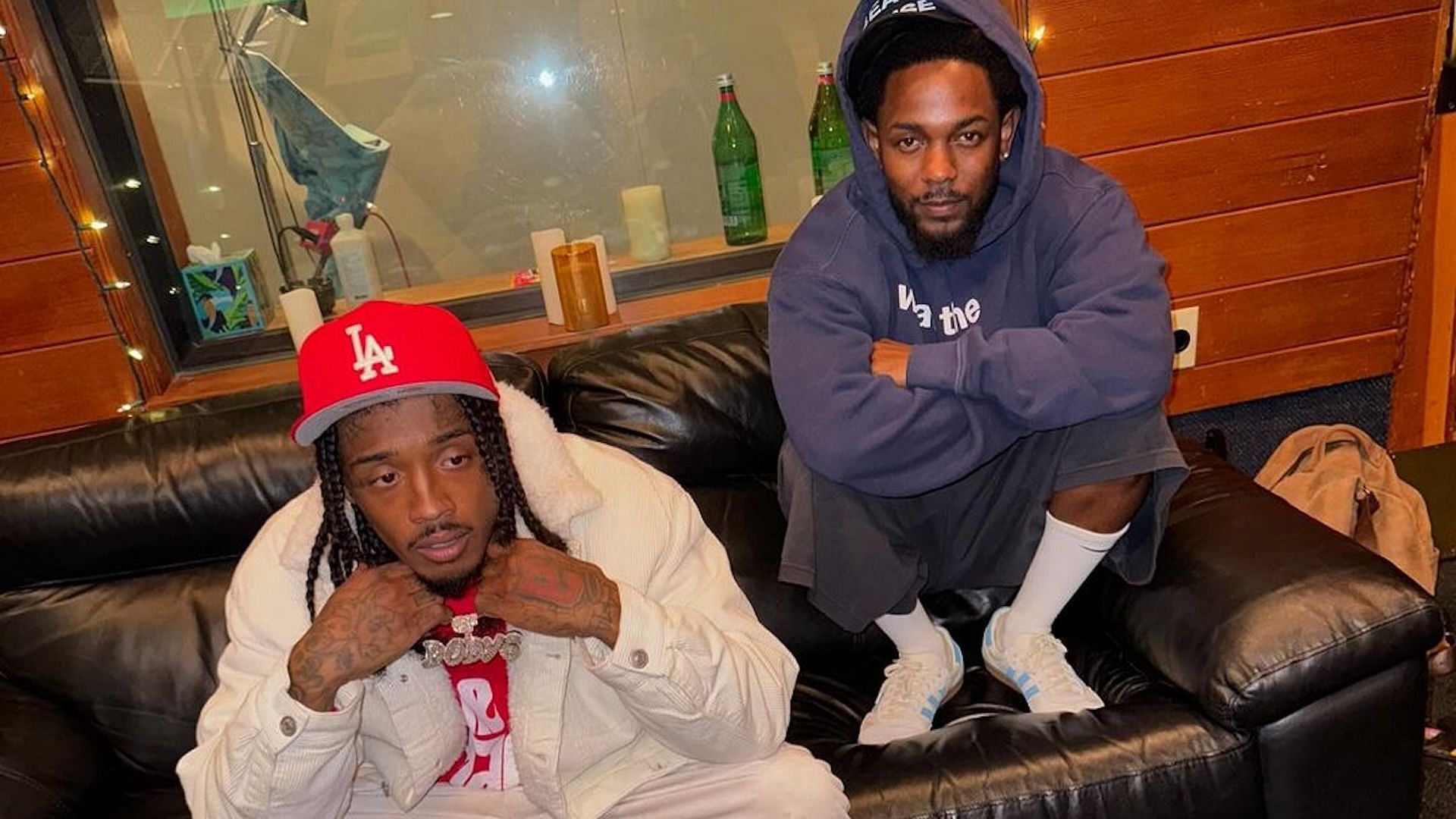
On his collaboration track, hey now, featuring Dody6, Kendrick Lamar once again references the 2024 rap beef during his opening verse.
He asserts himself as the winner in the lyrical war against Drake, before claiming the African American hip-hop community had witnessed him strangling one of their Greatest Of All Time rappers.
"It's high beams if I make a public appearance / Go back to hidin' 'cause I'm not too friendly with n----s / One one thousand, two one thousand, four / The Black know I just strangled me a goat / I walked in with a therapeutic flow / Put a few hundred up, let 'em go, let 'em go"
5) Kendrick claims he's trying to bring "peace to Los Angeles"
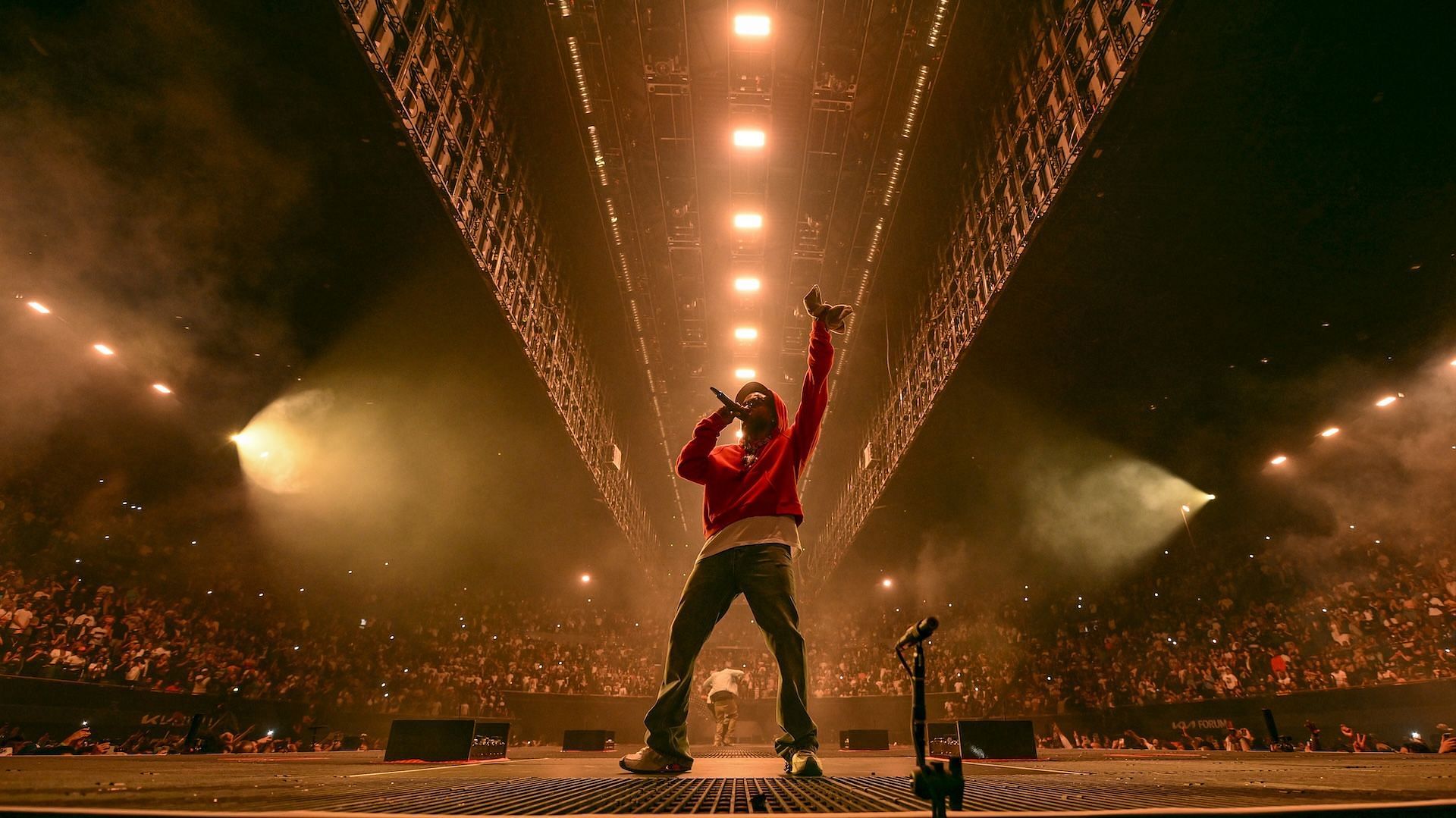
On Kendrick Lamar's third verse on reincarnated, the Compton rapper references his recent Pop Out Concert, where he brought out some of the biggest and most influential rappers from the West Coast on one stage.
Kendrick seemingly attempts to convince God that he has already made attempts to overcome his pride by listing out all of his good deeds.
He cites how he wishes to bring peace to LA by referencing June's Ken & Friends concert, since rival gang members put their differences aside, for the culture, and performed on stage together.
"Tell me every deed that you done and what you do it for / I kept one hundred institutions paid / Okay, tell me more / I put one hundred hoods on one stage / Okay, tell me more / I'm tryna push peace in L.A. / But you love war / No, I don't / Oh, yes, you do" - Kendrick Lamar raps on 'reincarnated'.
6) Kendrick yelling out "Mustard" on tv off's hook
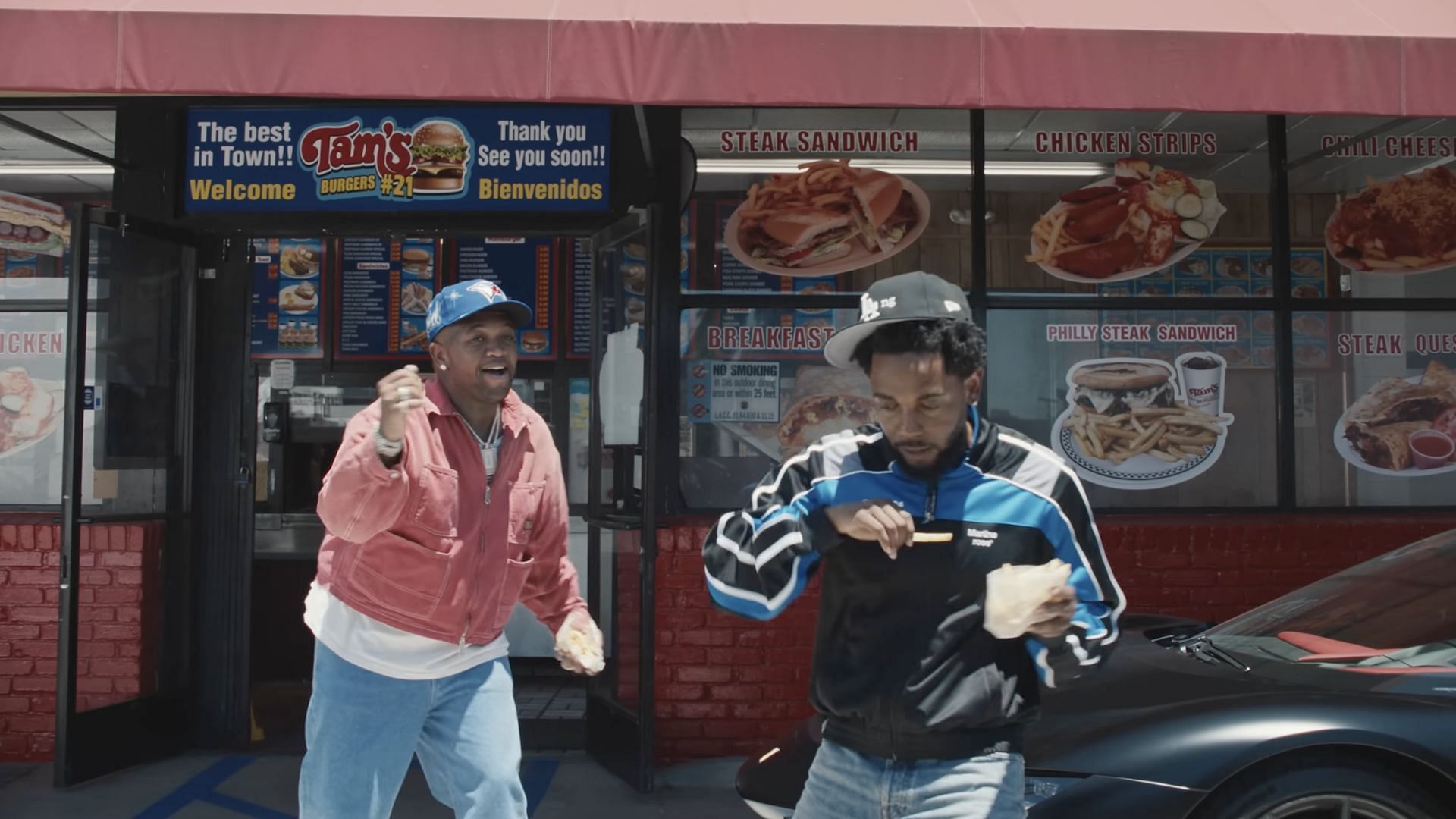
The two-part record, tv off, finds Kendrick Lamar praising DJ Mustard for co-producing GNX and their No.1 diss track Not Like Us. K-Dot yelling out Mustard's name at the start of the chorus, implies the massive amount of pride and love he has for his fellow West Coast hip-hop collaborator.
The hook, seemingly formulated with a rhythm that sets it up for extreme virality on platforms like TikTok and Instagram, finds Kendrick wishing to open the youth's eyes to reality, evidenced by repeated "turn the tv off" lines.
"Mustard! N----s actin' bad, but somebody gotta do it / Got my foot up on the gas, but somebody gotta do it / Huh, turn this TV off, turn this TV off / Huh, turn this TV off, turn this TV off / Huh, turn this TV off, turn this TV off / Huh, turn this TV off, turn this TV off"
7) Kendrick Lamar shouts out "Tarantino, Spike Lee, and Alejandro González Iñárritu"
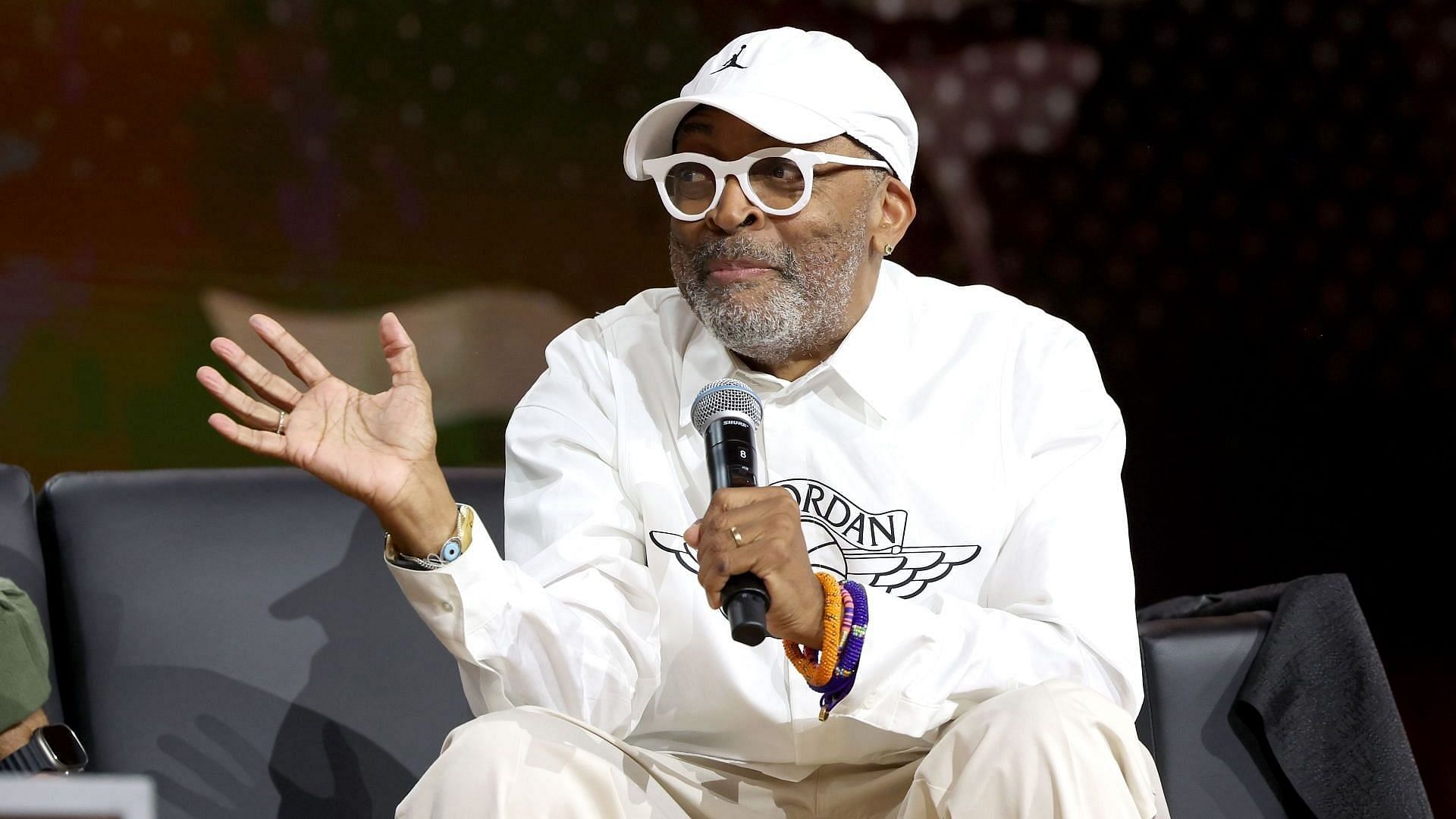
Kendrick introduces listeners to several pop culture references on dodger blue, with the rapper seemingly shouting out popular film directors while praising the City of Los Angeles.
Kendrick dedicates a bar to legendary film directors Quentin Tarantino, Spike Lee, and Alejandro González Iñárritu, all of whom have filmed iconic movies in LA. These references can be evidenced by lines like:
"B---h, I'm from the LAnd / Don't say you hate L.A., but live in L.A. and pretend / My neck on Tarantino, Alejandro, Spike Lee / Just know you took the scenic route if you stand by me, stupid"
8) Kendrick shouts out Kobe Bryants "81-point game"
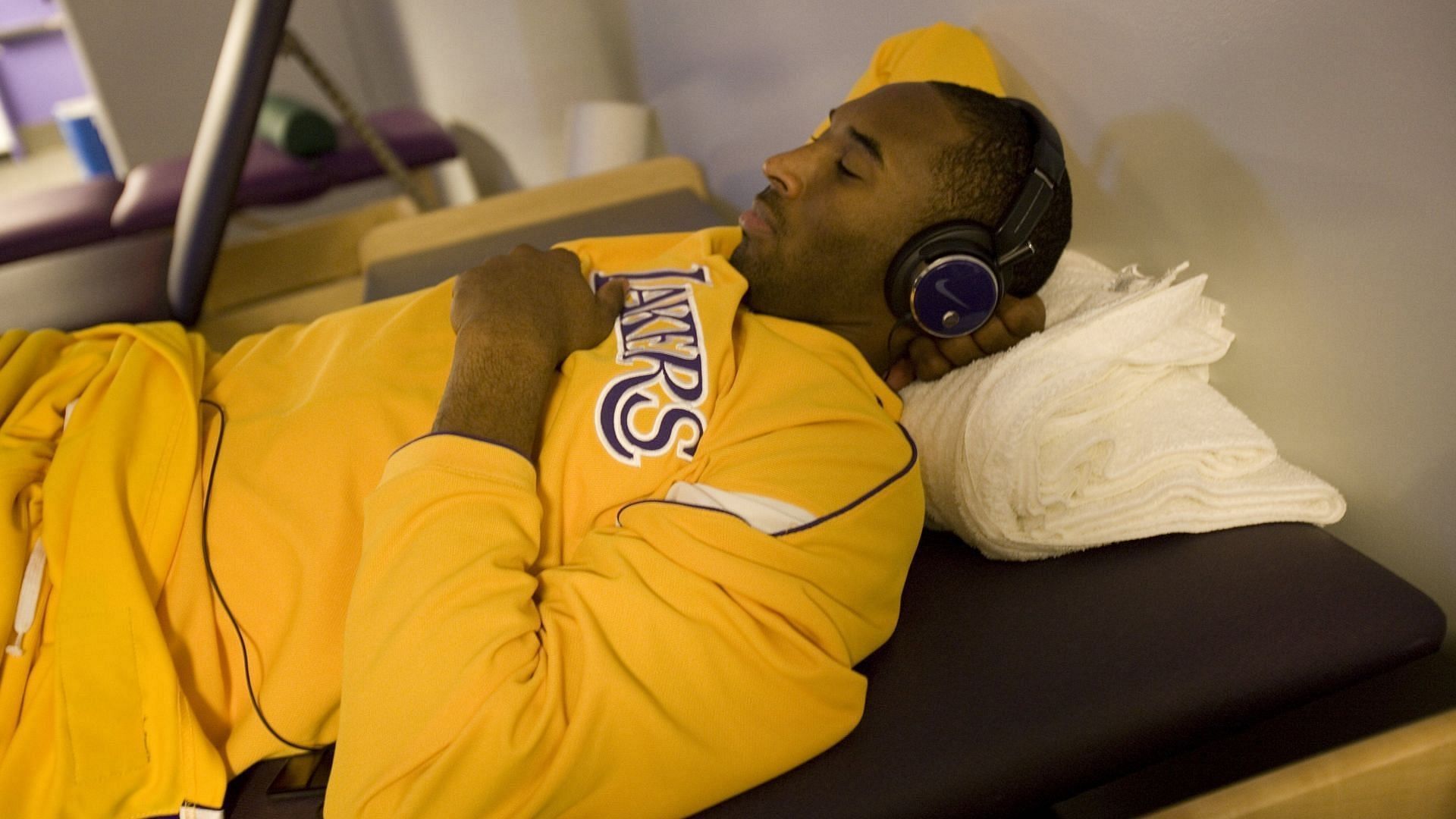
In his verse on peekaboo, Kendrick Lamar shouts out Kobe Bryant and the late NBA All-Star's 81-point game in 2006, where he became the second-highest-scoring basketball player of all time.
Lamar seemingly uses this reference as a double entendre for him winning his beef with Drake, as Kobe's LA Lakers defeated the Toronto Raptors, whom Drizzy has been seen supporting courtside for several years. This is best evidenced by lines like:
"Peekaboo, I just put them boogers in my chain / Peekaboo, eighty-pointers like a Kobe game / Peekaboo, 7.62s'll make 'em plank / Peekaboo, poppin' out, you better not smut my name... If he hatin', disrespect, you better follow up with hands / Losses to the neck, but now I'm trophied up, I'm sayin', like / Bing-bop-boom-boom-boom-bop-bam"
9) Kendrick revisits history with Top Dawg and Black Hippy
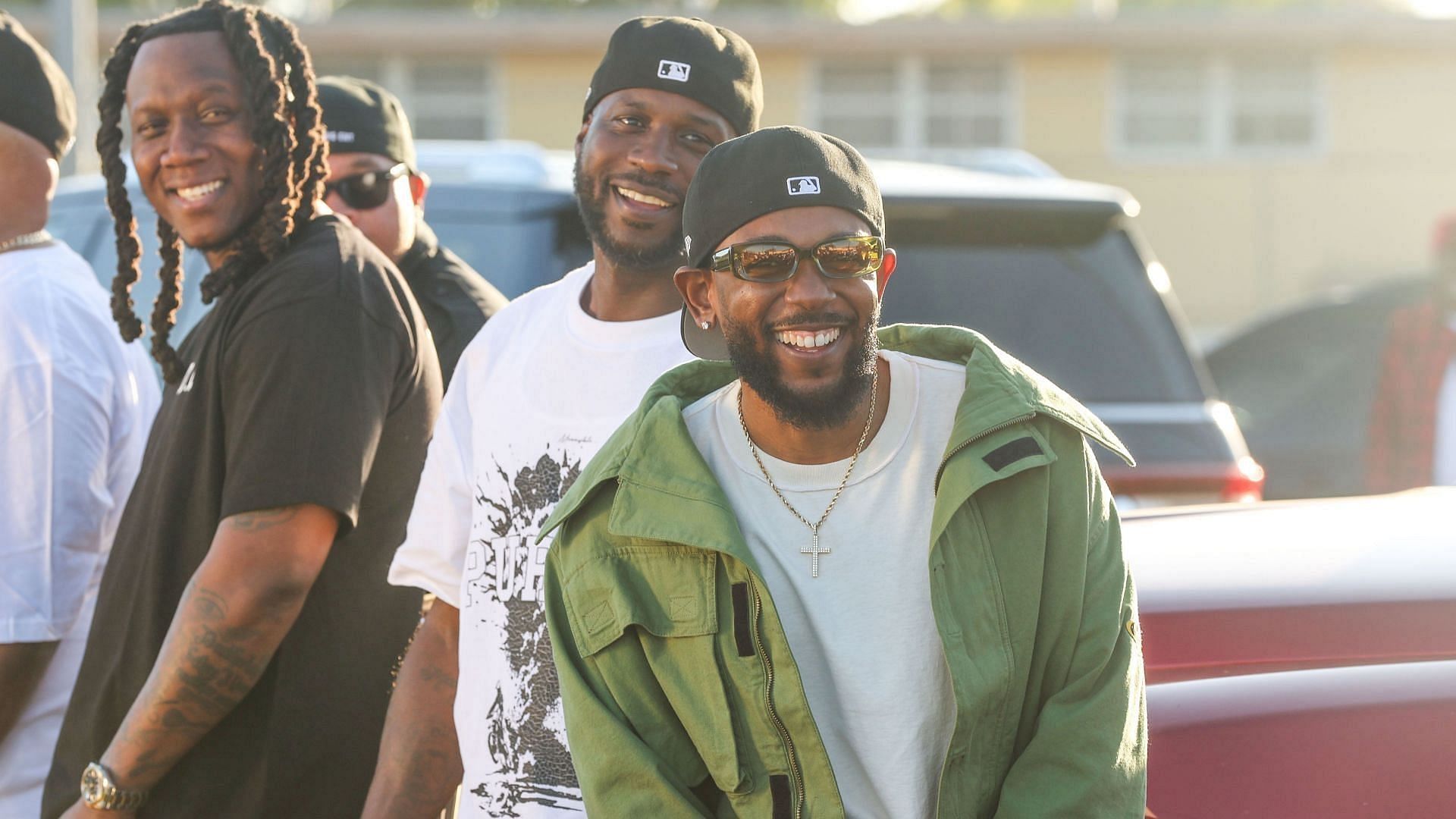
On Kendrick Lamar's reclaimed heart pt. 6 record, the Compton rapper appears to reminisce on his come-up days, alluding to his relationship with Top Dawg and members of the Black Hippy Collective.
The record finds Kendrick reflecting on his journey from an unsigned artist attempting to have Jay Rock signed by Warner Music, to ascending to global stardom.
Lamar's evolution has resulted in him always being considered in a conversation regarding hip-hop's "top 5". Notable bars of him revisits his early days with TDE can be evidenced on lines like:
"He brought Q over, but Q didn't rap, but he learned from our inspo / We split Louisiana chicken riverboat specials / Sleepin' next to 02R consoles to be our refuge / He was homeless and I left home / Q said, "Dot, you won't be slept on, you the n---a to bet on" (Use your h—) / Top had given us dominion in the home he lived in / Hopin' that we see some millions, God bless our hearts"
10) Kendrick highlights his "complicated relationship" with hip-hop
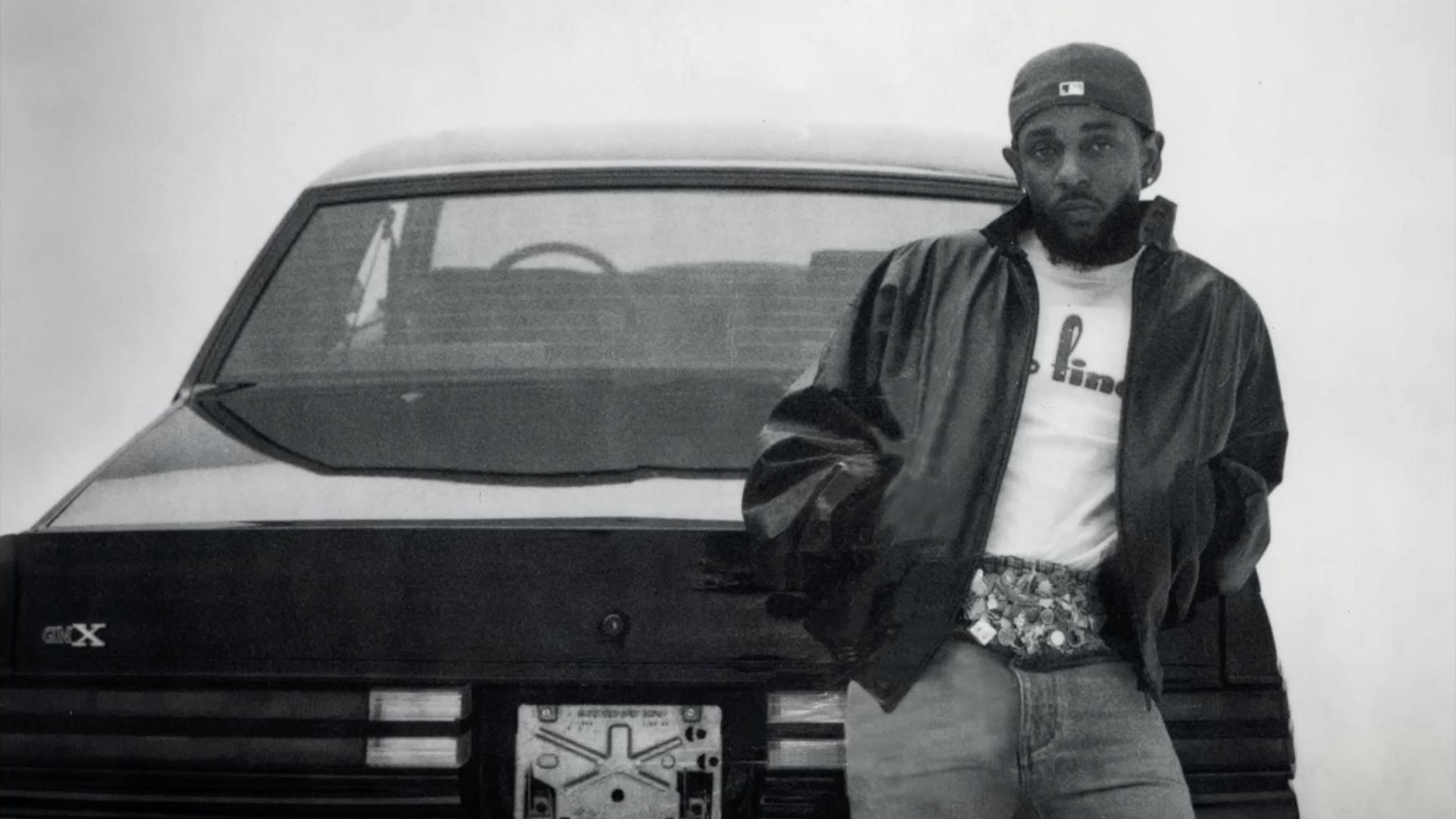
On the final track of GNX, titled gloria, Kendrick Lamar describes his complicated relationship with rap and writing music, metaphorically suggesting a romantic connection between him and his artistry.
The start of their relationship is best evidenced at the end of Lamar's first verse, where he claims the death of his grandmother pushed him to pursue making music, as seen in lines like:
"Preoccupied playin' John Madden and bulls--ttin' / Remember when granny died? You looked at me and said, "Baby, dry your eyes / Depend on me as your relief, let your anger be mine" / We was locked in ever since then / So territorial, even took me 'way from my friends, hmm, hmm"
While Kendrick Lamar delivered plenty of hard-hitting bars on GNX, the album's unique production stands out throughout its runtime.
Crediting co-producers Sounwave, Mustard, Jack Antonoff, and Kamasi Washington, GNX offered samples from Tupac and Debbie Deb, which helped elevate the LP's sonic direction.
